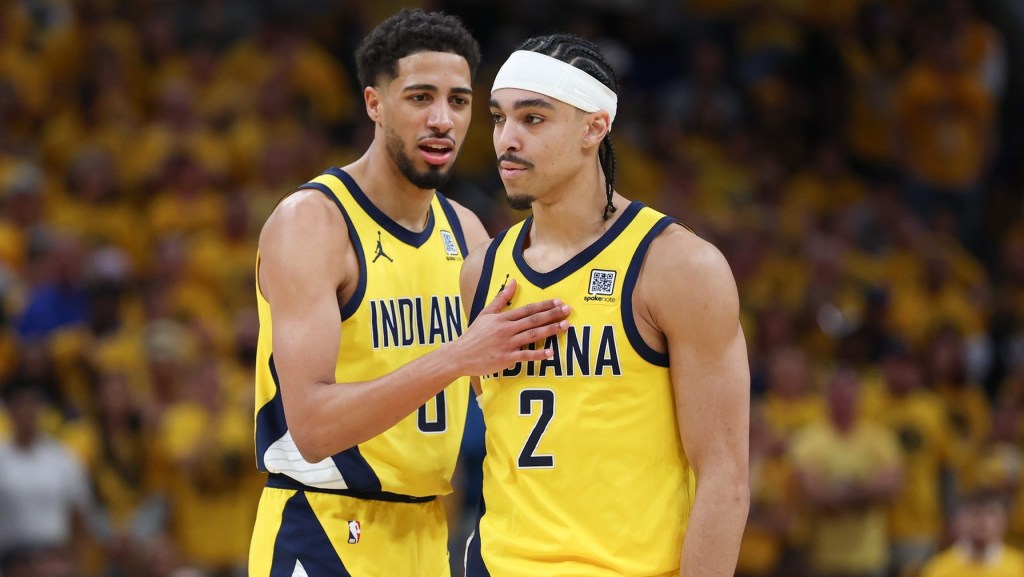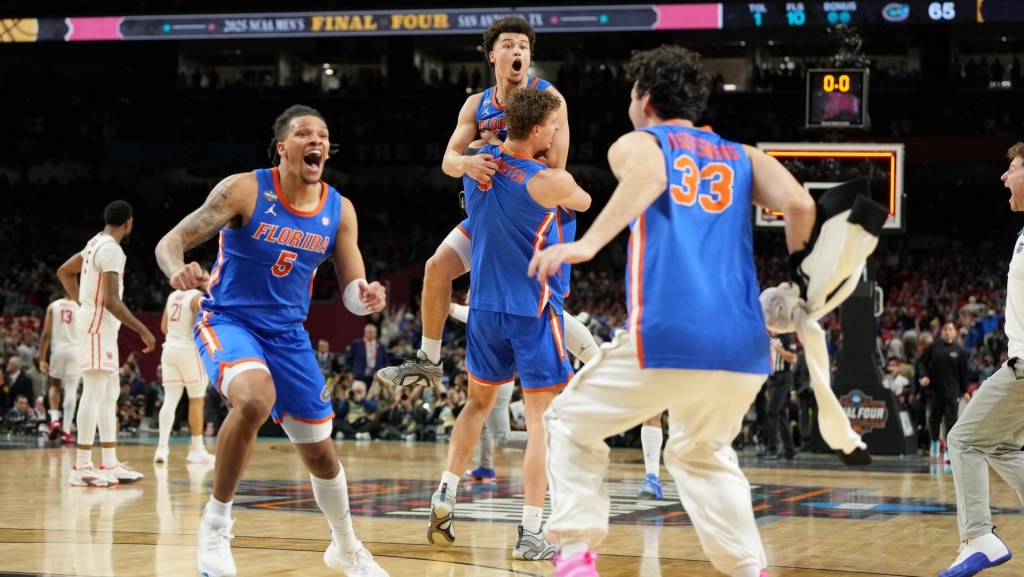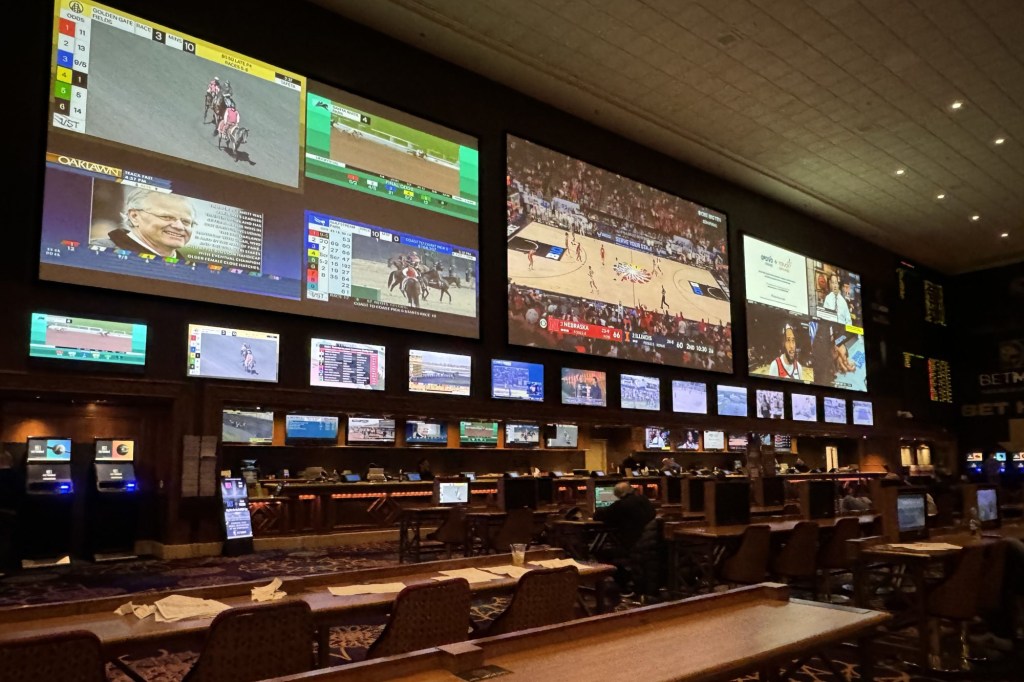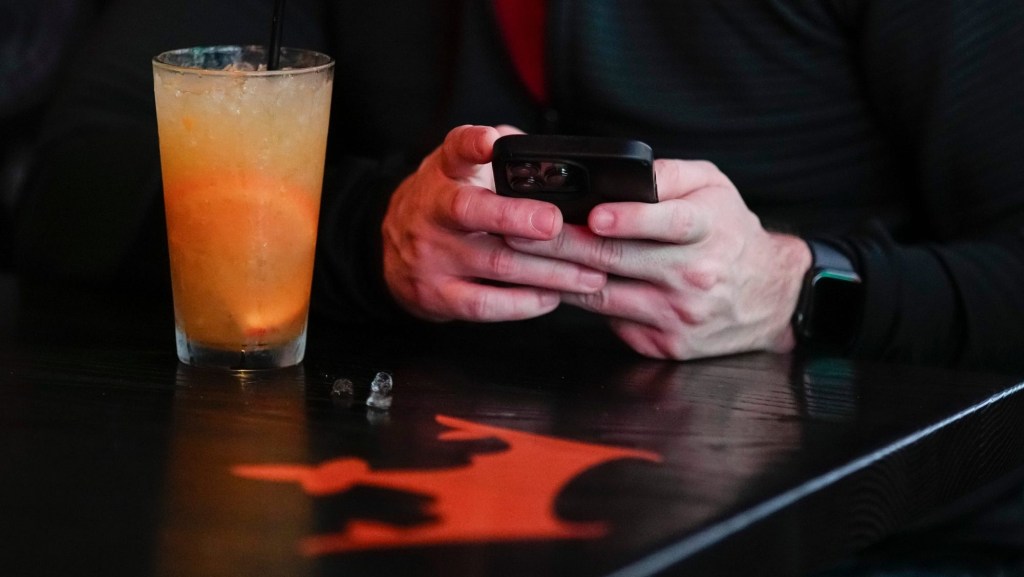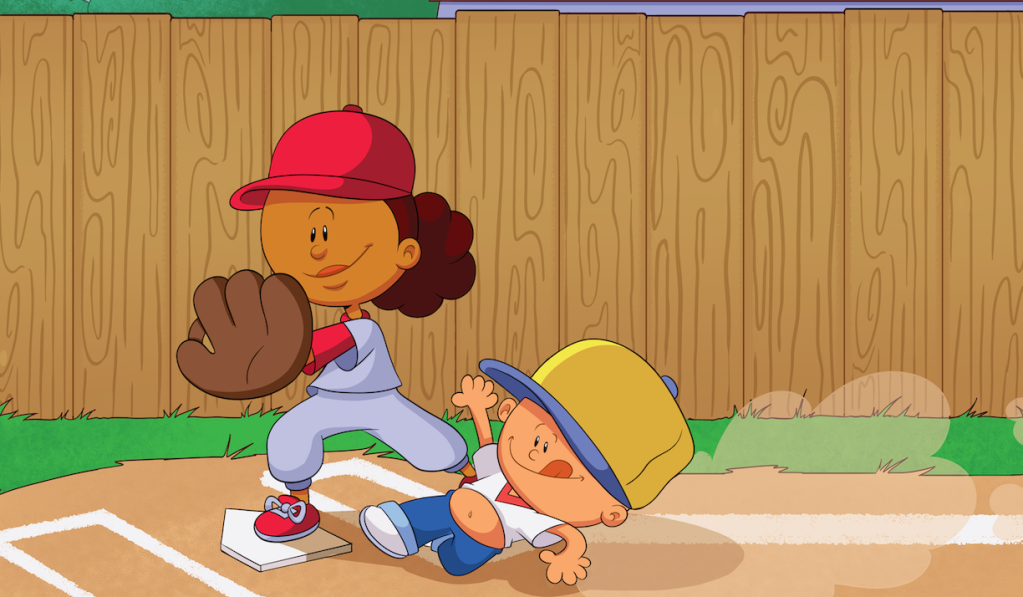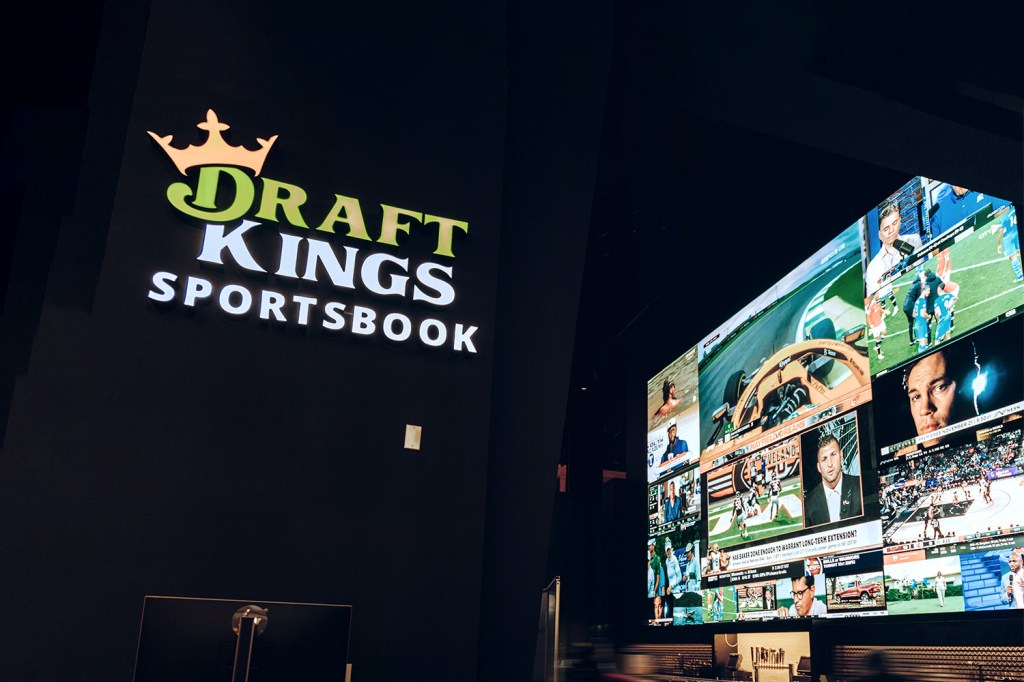On the morning of Feb. 2, 2021, EA Sports made an announcement.
“College Football is coming back,” the gaming company wrote in a graphic on X, referring to its NCAA sports video game franchise that had been discontinued a decade earlier. The post quickly gathered tens of thousands of likes and retweets of fans who had been deprived of the wildly popular product that had, in years past, been considered a cultural attachment to college sports as Madden is to the NFL.
In 2014, Electronic Arts stopped producing its college sports franchises after a federal court found that EA and the NCAA, who weren’t paying players for their portrayals in the game, were violating federal antitrust law—and after the NCAA and conferences pulled their trademark licensing from the company as a result. In the years since, the NCAA fought every single piece of legislation and litigation that would have allowed for the game to return with real players being paid. But when the NCAA was finally forced into allowing name, image, and likeness, EA Sports jumped into action.
After two years of game development, business negotiations, and even more legal action over player payments, EA Sports College Football 25 became available to the general public for the first time Friday.
The game’s return is much more than a celebratory time for generations of players and fans who have been deprived of the game.
“It definitely is symbolic,” says Ramogi Huma, a longtime college athlete advocate who has been involved in the NIL movement for more than a decade. “And while everybody is enjoying the game, I think it’s really important to understand that this is part of a cause, and this marks the end of a very exploitative period when it comes to NIL. This game in particular was a vehicle by which every football player in the nation was previously exploited economically.”
EA has been producing college sports video games since the 1990s, though they really became popular in the 2000s. The games, which included football and men’s basketball, depicted real players’ likenesses including jersey numbers, facial features, and mannerisms. But EA stopped short of using the players’ actual names, because the NCAA wouldn’t allow its athletes to profit off their NIL—so EA couldn’t pay them for being portrayed in the game.
In the mid-2000s, a group of college athlete advocates including former Nike consultant and renowned sports marketer Sonny Vaccaro, at the time looking for legal avenues to force the NCAA to change its rules, saw an opportunity. In ’09, Vaccaro, as well as attorney Michael Hausfeld, enlisted former UCLA men’s basketball player Ed O’Bannon to be the face of a lawsuit against EA and the NCAA over the fact that players weren’t compensated for their NIL use in the game.
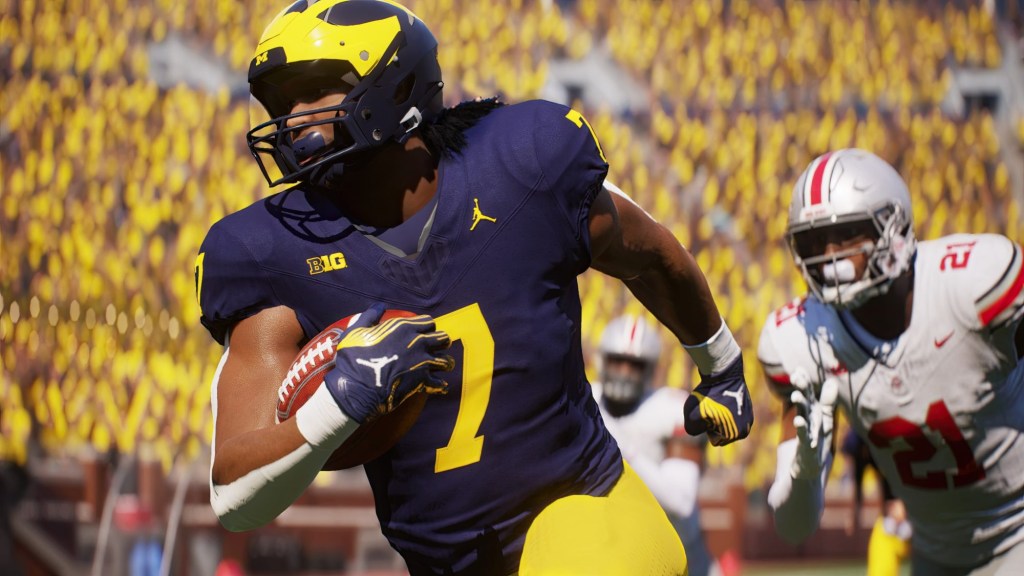
O’Bannon has told the story of how he joined the lawsuit hundreds of times over the years. According to its portrayal in Indentured: The Battle to End the Exploitation of College Athletes, a family friend’s son had been playing an EA college basketball game, and he pointed out that one of the UCLA players was clearly O’Bannon. “Dude, you’re on a video game!” he exclaimed. O’Bannon had no idea he was being portrayed, and he certainly wasn’t being compensated. So he was more than willing to be the named plaintiff for the case, which he filed in July 2009 in the Northern District of California.
The lawsuit eventually became a class action. Huma, the founder of the National College Players Association, helped recruit other plaintiffs. Andy Schwarz and Daniel Rascher, two economists who had been working on NCAA antitrust issues throughout the early 2000s, served as expert witnesses. The NCAA fought the lawsuit every step of the way, enlisting witnesses to peddle the now common doomsday scenarios that college sports would unravel if players got the economic rights they deserved.
In 2014, the NCAA lost the case—but insisted on appealing to the 9th Circuit. In ’15, the appeals court found the NCAA was, indeed, violating the law. But in a ruling, it stopped short of forcing the NCAA to allow NIL rights. So EA had to stop manufacturing its college sports games because a court said it had to pay players, but the NCAA wouldn’t let them. Many pointed the finger at O’Bannon.
“It has bothered me since the day the NCAA canceled their license with EA, that Ed O’Bannon got the blame for the game going away,” Schwarz tells Front Office Sports. “I was there and EA was eager to go forward. The plaintiffs, Ed among them, were ready to move forward, and then the NCAA decided to take their ball and go home.”
Throughout the next four years, the athletes’ rights movement continued to play out in court. Two cases over remaining compensation limits, Alston v. NCAA and Jenkins v. NCAA, got combined into one—and lawyers Steve Berman and Jeff Kessler, who just negotiated the House v. NCAA settlement, began working together on college athletes’ rights.
Public opinion, too, was shifting. Announcers began talking on NCAA broadcasts about how unfair the NIL rules were. Athletes like UCLA gymnast Katelyn Ohashi began speaking up about their inability to profit. The NCAA settled part of the Alston case during that time, though the governing body appealed a component of the lawsuit to the Supreme Court.
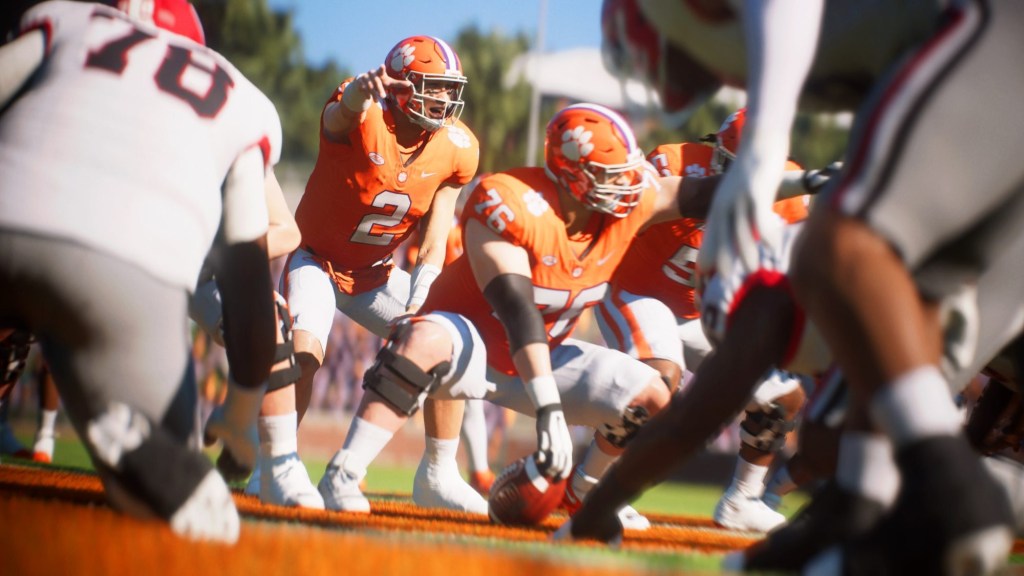
But the NCAA still wouldn’t budge on the NIL issue. So lawmakers stepped in.
California state senator Nancy Skinner long had an interest in college athletes’ rights. But she was particularly inspired by a talk about athletes’ economic rights given by Schwarz at the Rotary Club of Oakland while she was running for office. In 2019, Skinner finally introduced a bill that would force the NCAA to let players profit off NIL in California. “Had I introduced my law when I first wanted to in 2017, I’m not sure if we would’ve been able to get it through,” Skinner tells FOS. “By the time I introduced it, you had so many things falling into place.”
Despite facing major lobbying opposition from California universities and public threats from the NCAA, the bill passed almost unanimously. It set off a chain reaction nationwide. Huma helped usher bills in almost a dozen other states—so many that by the end of 2020, it was clear the NCAA would have to allow NIL.
Meanwhile, the Supreme Court heard an appeal of the Alston case and handed down a ruling in June that unanimously opposed the NCAA’s position. The case itself wasn’t directly about NIL—it focused on whether the NCAA could legally limit education-related benefits. But the ruling itself set a precedent that the NCAA was subject to strict antitrust scrutiny in general, and therefore could be sued in court for athlete compensation restrictions.
The governing body had no choice. On June 30, 2021, the NCAA issued an “interim” policy allowing athletes to profit off their NIL. It went into effect the following day.
EA announced it was bringing the game back several months before NIL rules themselves changed, seeing the writing on the wall. “I am very happy that Ed O’Bannon’s claims—that paying a fair market price for including players in the game was compatible with product success and a thriving college sports revenue base—have once again been proven true,” Schwarz says.
But there was still a long road ahead. Creating a game with hundreds of players and teams would be difficult enough by itself, but EA also had to navigate the complicated landscape of NIL, which was unlike any other pro sports league.
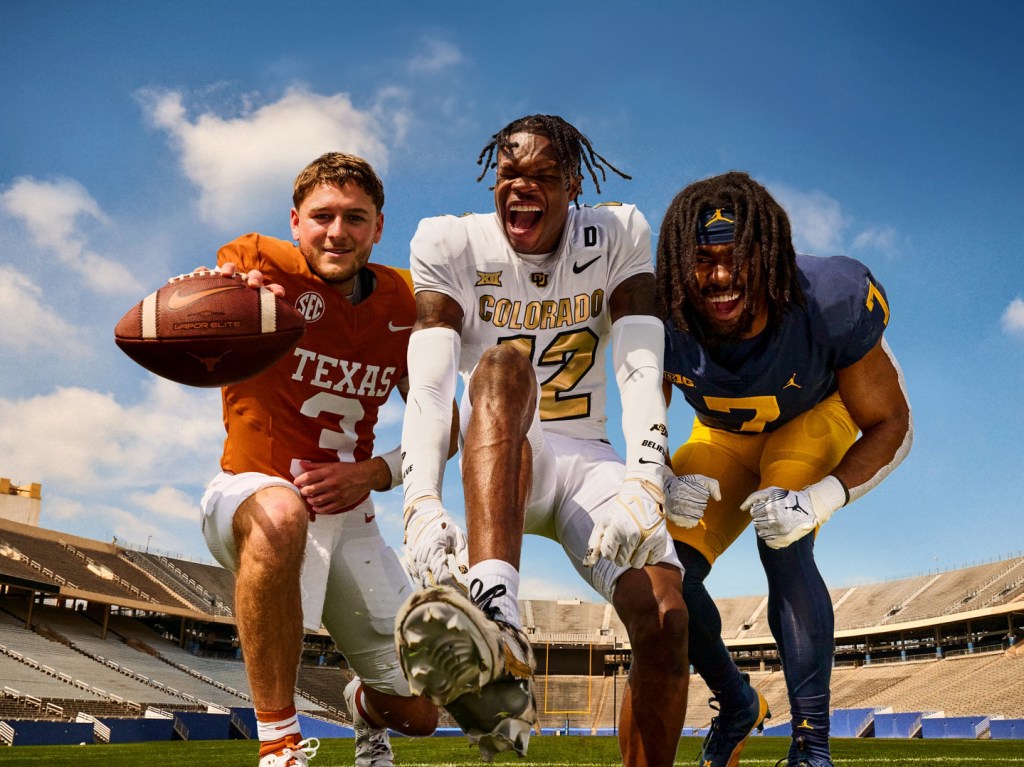
Usually, player unions negotiate the terms of deals that combine the use of multiple athletes’ NIL in a practice called “group licensing,” which can include anything from video games to jersey deals and trading cards. But the NCAA prohibits players from unionizing, and even tried to get Congress to pass a law prohibiting any sort of group licensing NIL deals—so EA had to get creative.
The company spoke with multiple group licensing companies that have tried to fill the void left by the NCAA’s remaining restrictions, looking for a way to efficiently get thousands of FBS football players the chance to opt in to the game. They settled on a deal with OneTeam Partners, which would use an app to allow players to sign up to be portrayed in the game in exchange for a one-time payment of $600 and a free version of EA Sports College Football itself.
But the deal itself was controversial. Some criticized it for underpaying players, especially since it doesn’t include a royalties component like pro athlete games would. In the summer of 2023, another group licensing company, The Brandr Group, sued EA over its decision to enlist OneTeam. While the lawsuit was ultimately dropped, it brought up serious questions about who has jurisdiction over college athlete representation in a world without a formal union.
“Could [the deal] be better? Who knows,” Huma says, adding that the comparison to the pro leagues isn’t apples to apples for many reasons. “I hope players get every dime that they can. Every penny that they can. But I think that this is a very positive first step.” Huma also noted that for many players, the intrinsic value of being portrayed in the game far outweighed any check they would receive.
The athletes’ rights movement is far from over, however. Skinner is working on more legislation; Huma is leading a case at the National Labor Relations Board over athlete employment status; and countless other lawyers and advocates are battling in court and Congress for more progress. But this week, the athlete advocacy community is taking a breath to celebrate—and dust off their gaming systems.
“It’s exciting for me, my teammates, and my friends from other schools to be in the game and get paid,” Washington football player and NCPA member Dyson McCutcheon said in a statement. “I’ve been playing this game all week. I know a lot of people before me fought for this—and I’m grateful.”
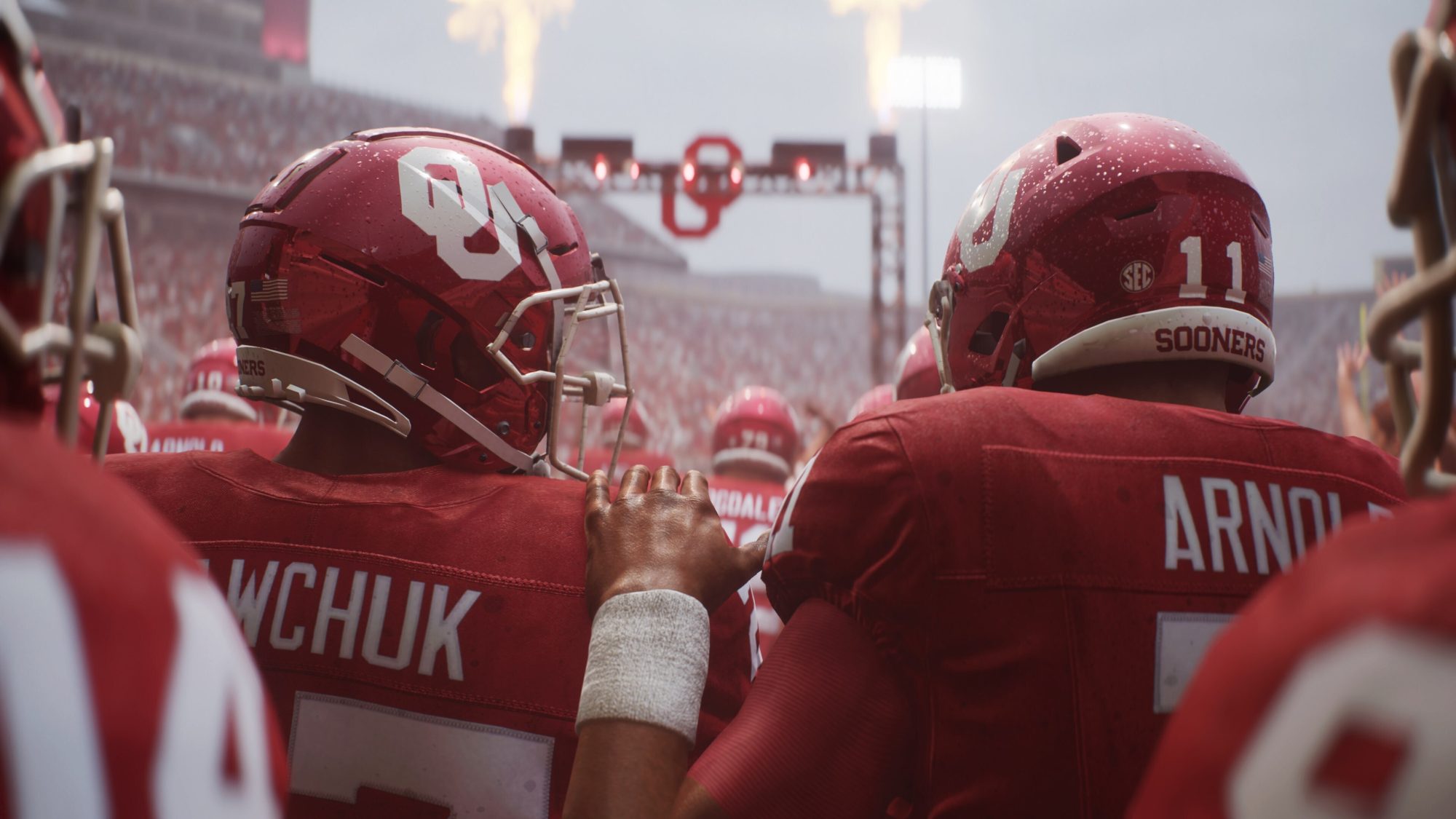




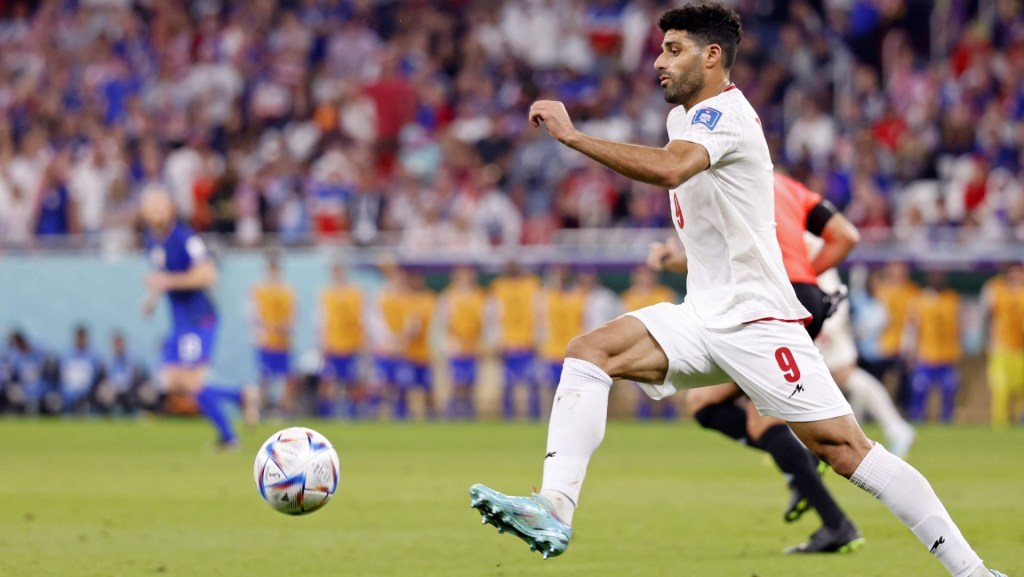


![[Subscription Customers Only] Jun 15, 2025; Seattle, Washington, USA; Botafogo owner John Textor inside the stadium before the match during a group stage match of the 2025 FIFA Club World Cup at Lumen Field.](https://frontofficesports.com/wp-content/uploads/2026/02/USATSI_26465842_168416386_lowres-scaled.jpg?quality=100&w=1024)
![[Subscription Customers Only] Jul 13, 2025; East Rutherford, New Jersey, USA; Chelsea FC midfielder Cole Palmer (10) celebrates winning the final of the 2025 FIFA Club World Cup at MetLife Stadium](https://frontofficesports.com/wp-content/uploads/2026/02/USATSI_26636703-scaled-e1770932227605.jpg?quality=100&w=1024)
